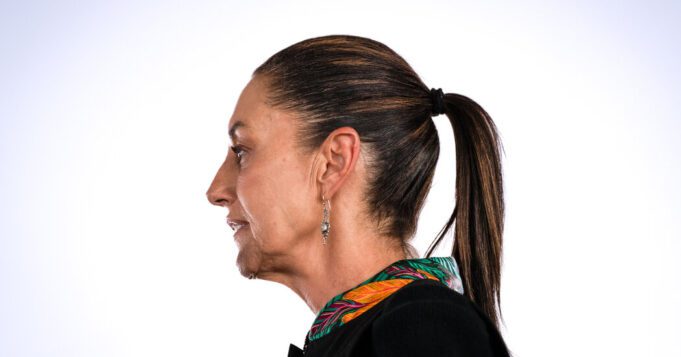This year's US presidential election is once again a contest between two men. But in Latin America, electing a woman as president is becoming more common, as Mexico's landmark election over the weekend showed.
Claudia Sheinbaum, Who won the Mexican election in a landslide? Competing with another female candidate, Xóchitl Gálvez, at least a dozen women have served as president of the Latin American country since the 1970s.
The growing list includes former leaders of Latin America's two largest countries, Brazil's Dilma Rousseff and Argentina's Cristina Fernández de Kirchner, as well as former leaders of smaller nations such as Nicaragua's Violeta Chamorro and Honduras' current president Xiomara Castro.
The advancement of women underscores how some Latin American democracies that have emerged from the ashes of dictatorships have been unusually open to breaking down barriers to political representation.
Jennifer Piscopo, professor of gender and politics at Royal Holloway, University of London, said female presidents in Latin America generally followed a pattern of being nominated by a ruling party that already had high voter support.
Citing the examples of Rousseff in Brazil, Michelle Bachelet in Chile and Laura Chinchilla in Costa Rica, Ms Piscopo said these parties “have the best of both worlds”, firstly they can reap the electoral benefits of a good reputation before elections.
Second, “they can also use women to communicate newness or change to voters,” Ms. Piscopo said.
In Mexico, the ruling Morena party has steadily expanded its influence across the country in recent years while making gender equality in politics a pillar of its ambitions to transform the world's largest Spanish-speaking country.
Although Mexican women did not gain the right to vote until 1953, the country now stands out in the region for a range of policies and legislation specifically designed to open the way for women's political participation.
These efforts gained momentum after the landmark 2000 elections that ended decades of authoritarian rule. Quotas allow more women to run for officeSubsequently, a 2019 constitutional amendment, supported by a broad coalition of women activists, academics and politicians, set equal goals for the legislative, judicial and executive branches.
Just a few years later, Mexico not only had a woman elected president, but also women at the helm of both chambers of Congress, with women holding half of the legislative seats in this election. Women also serve as chief justice of the Supreme Court and as governor of the central bank.
The push for equality has been echoed in local and state elections. As with the presidential race, the gubernatorial races in Guanajuato and Morelos states saw two women vying for victory.
The increase in women in politics is reflected in landmark policy shifts, such as Mexico’s legalization Abortion rates nationwide in 2023. Mexico joins the following countries: Argentina, ColombiaGuyana and Uruguay have taken steps to expand abortion rights.
Yet Latin America’s recent history also serves as a wake-up call, reminding us how easily women can fall from rare positions of power.
In Brazil, for example, this year's scenario parallels the Mexican election, when Sheinbaum was a protégé of a wildly popular male president and Rousseff, who served as chief of staff to Luiz Inacio Lula da Silva, won the presidency in 2010.
Rousseff was re-elected in 2014. But she subsequently faced public opposition from lawmakers as her left-wing party was embroiled in a major corruption scandal and the economy weakened. The opposition led to her impeachment on charges of manipulating the budget to cover up economic problems and She was dismissed in 2016.
The ouster paved the way for the presidential campaign of Jair Bolsonaro, a far-right figure who has spoken out against attack Domination over women was a major part of his rule.
After impeachment, Rousseff ran for a Senate seat in 2018 but lost. When Lula returned to the presidency in 2023, she also once again served as chairperson of the development bank co-founded by Brazil, China, India, Russia and South Africa.
“It’s not just about keeping your job,” said Mónica Tapia, founder of Aúna, an incubator for women’s political leadership in Mexico. “It’s about having the power and autonomy to control the agenda and the legacy that women want to leave behind.”
Emiliano Rodriguez Mejia Reporting from Mexico City also contributed.








